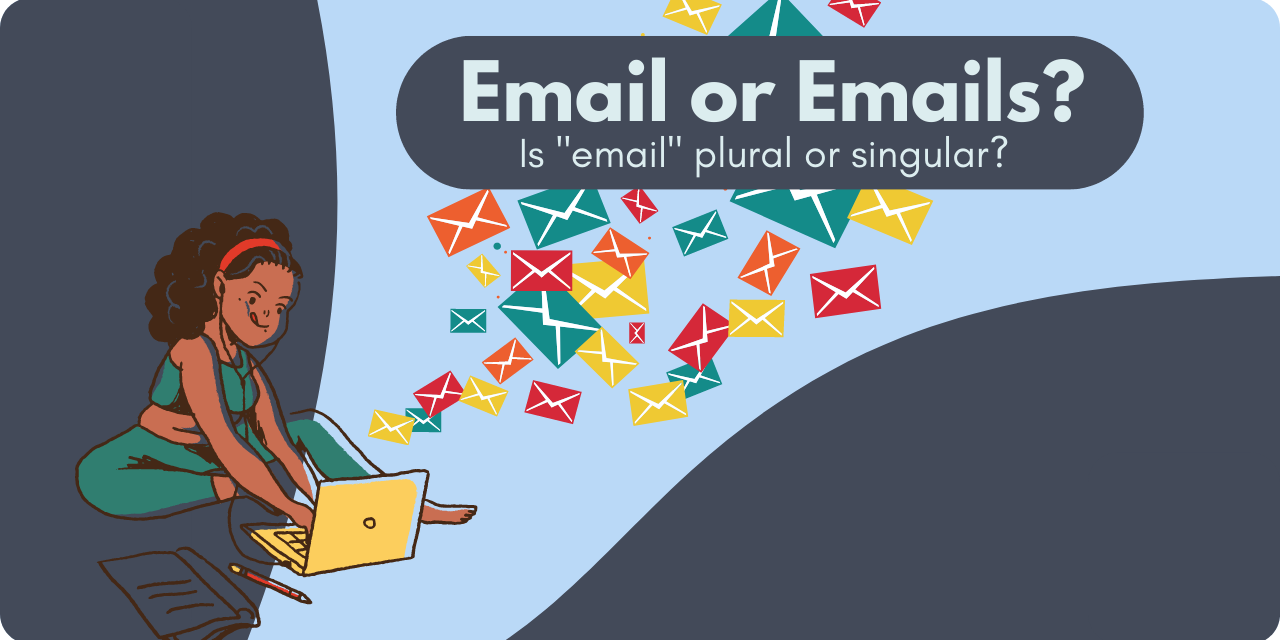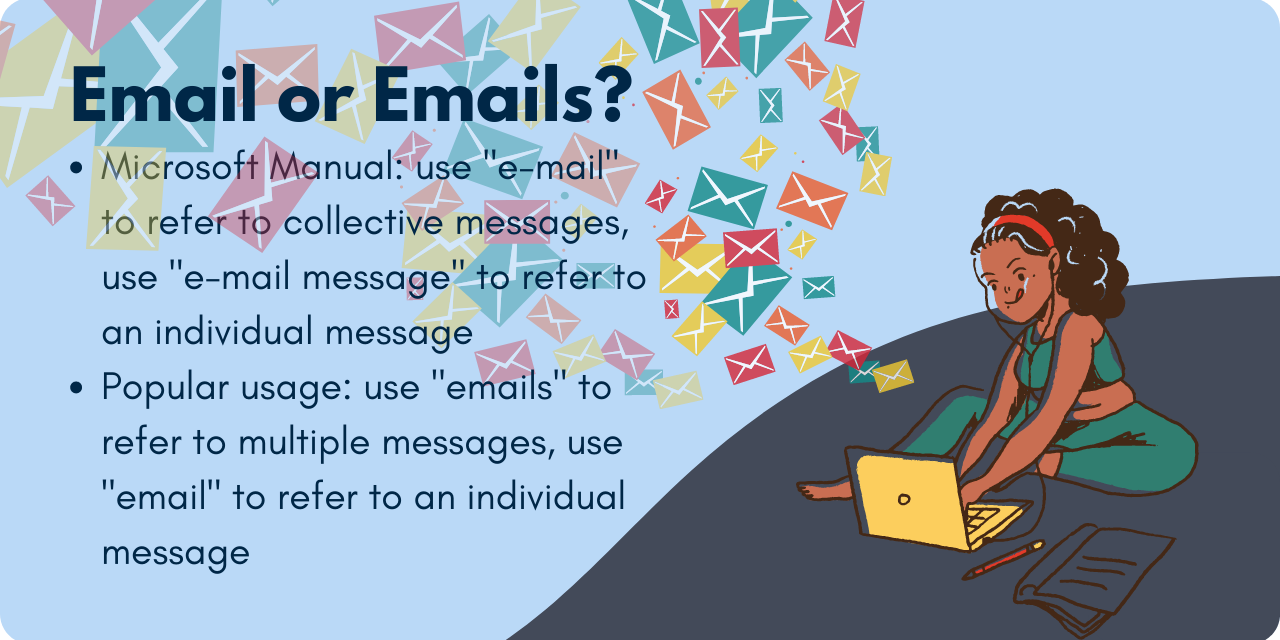Email is? Email are? Emails are? We discuss below whether the word email is singular or plural and how to use it.

One day no doubt all style manuals will jump in to provide an opinion, but now only the Microsoft Manual of Style for Technical Publications offers guidance. (At least it is the only style manual on my bookshelf that does so. Please let me know if you have other resources.)
Here is what the excellent Microsoft Manual says:
“Use e-mail to refer collectively to e-mail messages. After you have established the context of electronic mail, it is all right to use mail instead of e-mail. . . .”
“Use e-mail message or message to refer to an individual piece of e-mail. Do not use e-mail as a synonym for message.”
The Microsoft Manual declares it incorrect to say “Send me an e-mail” or “You have two new e-mails.”
Following Microsoft’s guidance then, email would take a singular verb, for example, “Email is a lifesaver in our industry.” For more than one, you would use “email messages”: “Your email messages have come back undeliverable.”
That is useful guidance. However, based on my experience with writers at companies large and small, I can confidently say that people are not following Microsoft’s rules. I often see these constructions:
- Send me an email. (Microsoft would say “Send me an e-mail message.”
- I emailed you twice. (Microsoft frowns on using email as a verb. Rather, it recommends “I sent you two e-mail messages.”)
- You received at least 20 emails from employees.” (Microsoft avoids the word e-mails.)

Although my usual stance is to take cover in the safety of respected style guides, I believe our common usage will quickly win out. That is why I am comfortable using the language in the examples above. Because many people use the plural noun emails, it will soon be standard usage. Because most people will “email you” rather than “send you an email message,” I believe the verb email will soon be recognized as concise rather than questionable.
So how about singular and plural? Email takes a singular verb:
The email is constant. My email takes forever to read.
Emails takes a plural verb:
Both emails were caught in the spam filter. His emails from Australia are a delight to read.
You may also be scratching your head about whether email requires a hyphen, particularly because I have written it with and without above. (All the withs are when citing the Microsoft Manual.) All my style guides recommend the hyphen, and only the Gregg Reference Manual even mentions the unhyphenated version. However, I myself omit the hyphen. I am simply awaiting the day when all style manuals leave it out, and then my materials will be current. That’s long-range thinking!






